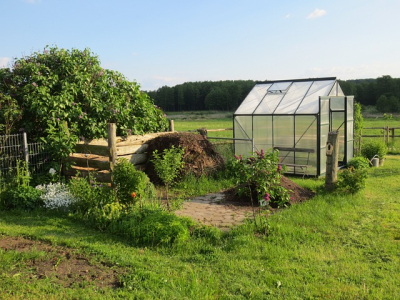Why Allotments Are Great for the Cost of Living Crisis

Inflation is at a record high and figures show that we’re paying on average £643 more for our groceries than last year. It’s little wonder that more people than ever are looking into growing their own food. Here’s why allotments are great for the cost of living crisis.
Growing for the Future in Hounslow
Here’s an amazing example of why allotments are great for the cost of living crisis. In Hounslow, west London, 27 acres of public wasteland has been made available to local people to grow their own food. That’s enough land for 500 allotments, as well as some community gardens and orchards. Schools will have access to 18 of the sites. This will mean teachers can teach pupils about healthy living and where their food comes from. Pupils and their families will benefit from food grown on the sites.
The ‘Grow for the Future’ scheme is the first of its kind in the UK. The council hopes it will inspire other local authorities to introduce similar initiatives.
Why Allotments Are Great for the Cost of Living Crisis
There are many reasons why allotments could be your secret weapon in a cost-of-living crisis.
You can grow your own cheap healthy food
The obvious benefit is that growing your own food is way cheaper than buying produce from the supermarket. It’s also healthier. When you grow your own food, you can control what you put on it and avoid chemical pesticides. It’s also likely to be more nutritious. When you harvest food at its freshest, it contains more nutrients. With supermarket produce that’s travelled across the globe and sat on a shelf for a week, nutrients may be lost.
It can spark healthier habits that help the environment
Even if environmental issues aren’t at the top of your list of concerns right now, it doesn’t mean they’ve gone away.
Growing your own food in allotments can help you to start healthy environmentally-friendly habits. Once you’ve got your green fingers going, you’ll have a better idea of where food comes from and what it takes to grow it. After growing your own fresh produce, you’ll never want to go back to expensive pre-packaged fruit and veg.
Allotments are good for our health
Many people are cutting back on costly gym memberships because of the rising cost of living. However, that doesn’t mean your health has to suffer. Working on an allotment is good physical exercise which gets you out in the fresh air.
It’s not just your physical health that benefits either. If the cost of living crisis has sent your stress levels soaring, spending time on an allotment could help. A recent study conducted at Newcastle University found that allotment gardening is great for your mental health as well as your physical well-being. The effects of being outside in nature alone can help to reduce stress.
How Can I Get an Allotment?
Contact your local authority
Waiting lists for allotments tend to be long, so get in quickly and contact your local authority to get your name on the list.
If the land is not owned by the local authority…
Some allotments are owned by private landlords like the Church of England. Search for your local allotment society online and ask if they know of any available plots or who owns the land.
If there are no allotments in your area
If there are no allotments in your area, you and five others who’d like one can submit a letter to your local council. Whoever you ask must be on the electoral register or they must be a registered council taxpayer. Under the 1908 Small Holdings and Allotments Act, local authorities have a mandatory obligation to provide allotments. This rule doesn’t apply to London.
Just ask
If asking your local authority or private landlords draws a blank, you can always take a chance. If you see some vacant land in your area, you can always try and find out who it belongs to. You might just get lucky! Allotments are a great way to reduce costs and stay healthy during the cost of living crisis. Do you grow your own food? Do you have an allotment garden? We’d love to know. For more interesting articles on all things gardening, check out the rest of our blog.








